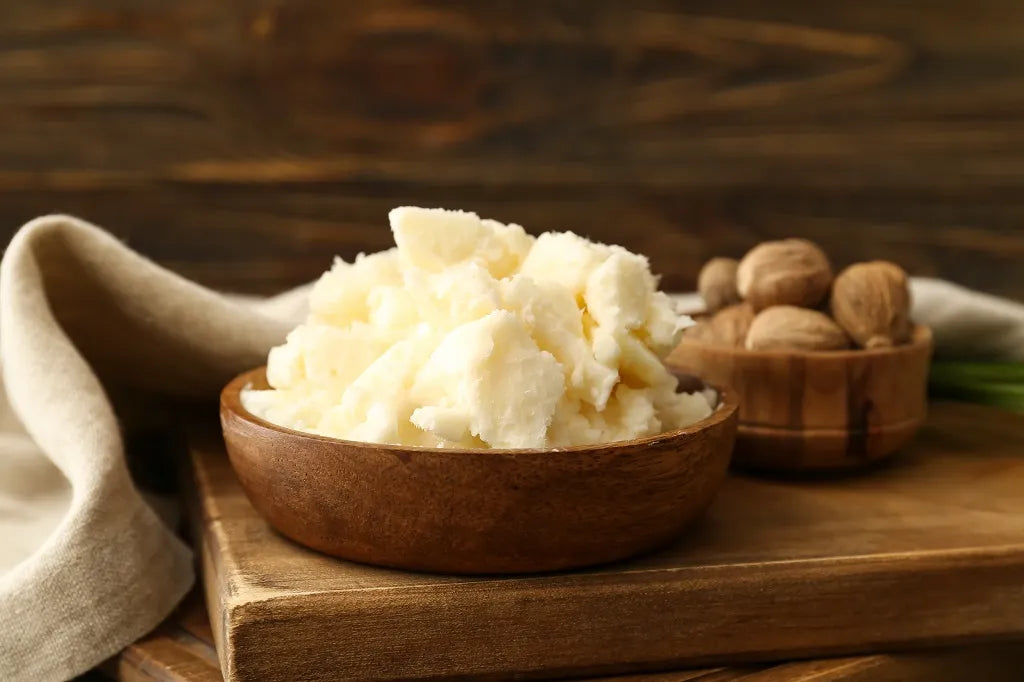You must have seen an ingredient called ‘jojoba oil’ in various skin and hair care products you must use every day. Have you ever wondered what jojoba oil is? If yes, then here’s your perfect guide to finding out all about jojoba oil- from what it is to how to use it. Let’s get started!
What is jojoba oil?
Jojoba oil is the oil produced from the jojoba plant seeds. Jojoba is a shrub, native to dry regions of southern Arizona, southern California, and northwestern Mexico. Jojoba oil was first extracted by the O'odham Native American tribe to cure sores and wounds. As per Wikipedia, “unrefined jojoba oil appears as a clear golden liquid at room temperature with a slightly nutty odor, whereas refined jojoba oil is colorless as well as odorless.”
As you must be aware, jojoba oil is used in almost every other skin care and hair care product, such as shampoos, makeup products, cleansing products, lotions, etc. It is used on the skin to cure acne and sunburns and is used on hair to encourage hair regrowth. It can also be used as a carrier oil to be mixed with other essential oils.
Now that we know what jojoba oil is, let’s first discuss its various benefits.
How does jojoba oil benefit our hair?
Jojoba oil is beneficial for the hair in many ways. Some of the benefits are listed below:
- Soft, glossy hair: The use of Jojoba oil on your hair makes it soft and shiny.
- Hydrated hair: It hydrates the tresses and locks in moisture.
- Conditions hair: Jojoba oil contains palmitic acid and stearic acid which help in conditioning the hair.
- Say no to dandruff: Applying jojoba oil to hair prevents dandruff.
- No more itchy scalp: Jojoba oil also prevents an itchy scalp.
- Protection from heat-based styling tools: This multipurpose oil also protects the hair from heat-based styling tools.
- Prolonged hair color: The use of jojoba oil on colored hair may also end up prolonging the color of your hair.
- Healthy hair: Jojoba oil contains vitamins and minerals that keep the hair nourished and healthy.
- Rapid hair growth: It encourages hair regrowth.
- Strengthened hair and scalp: It strengthens the hair as well as the scalp.
- Slow aging: Jojoba oil contains copper, meaning it can help slow the process of graying your hair.
- No more frizzy hair: It prevents dry, rough hair as well as split ends.
How does jojoba oil benefit your skin?
Jojoba oil benefits your skin in the following ways:
- It works as a moisturizer for your skin and keeps it hydrated.
- It is antibacterial, and therefore, prevents skin diseases such as bacterial infections.
- Jojoba oil works as an antioxidant for the skin and protects it from everyday exposure to pollutants and other toxins.
- Usage of jojoba oil prevents breakout and leads to less severe acne.
- If examined at the molecular level, jojoba oil is pretty much wax. Hence, it creates a soothing seal on your face.
- It helps balance sebum production and prevents the skin from looking oily.
- It prevents clogged pores, and therefore reduces acne.
- Jojoba oil consists of vitamin E, and therefore, helps in healing wounds like scratches or cuts.
- It also helps in soothing sunburns.
- Jojoba oil can heal mild acne.
- . Since jojoba oil is beneficial for healing, it may also minimize the surfacing of scars on your skin.
- It may help slow down your skin’s aging process.
Possible side effects of jojoba oil
Jojoba oil is generally good for your hair and skin. However, there may be some possible side effects of jojoba oil that you must take care of before using it. These are as follows:
- Allergic reactions: Jojoba oil is mostly safe to use on hair and skin. However, in some rare cases, the use of jojoba oil on the skin may cause side effects such as allergic reactions and rashes.
- Itching: In rare cases, jojoba oil may cause itching in your skin.
- Heart damage: Jojoba oil is mostly good for you as long as you are using it on your skin and hair. However, if you accidentally inhale it, it may prove to have harmful effects on you. Jojoba oil contains erucic acid, which may cause serious toxic side effects to your heart if consumed at high doses.
How to use jojoba oil?
Using jojoba oil is very easy as it does not need to be diluted before use, unlike some other essential oils. It can be directly applied to the skin and hair. It is also safe to use around the eyes. As for the hair, take some jojoba oil in your palm and apply it to your scalp and tresses to make them recover from dryness and frizziness.
However, just like you would do with every other new thing, you should do a patch test before using jojoba oil. This helps in making sure that you’re not allergic to it. For the patch test, follow the given steps:
- Wash and dry your inner forearm thoroughly.
- Apply a few drops of jojoba oil to the area washed and dried.
- Cover it with a bandage.
- Leave it on for at least 24 hours.
- After 24 hours, uncover the bandage and check for any signs of itchiness or redness on your skin.
In most people, the results would be satisfactory; i.e. there would be no rashes or redness on your inner forearm. However, in the rarest of cases, if you do feel itchiness on your skin, it may be because you’re allergic to it. In such cases, wash it off immediately thoroughly.
Now you know all about jojoba oil is, and how to use jojoba oil. Apart from the rarest of cases, jojoba oil benefits the skin and hair. Therefore, if you're not allergic to it, do make use of it!
Also Read:
Extremely Dry Curls ? Use Products With These Ingredients!
All the content published on www.Curlvana.in is solely for information purposes. It is not a substitute for professional medical advice, diagnosis, or treatment. Always consider seeking the advice of your physician or a qualified health care provider. The information, suggestion, or remedies mentioned on this site are provided without warranty of any kind, whether express or implied.




